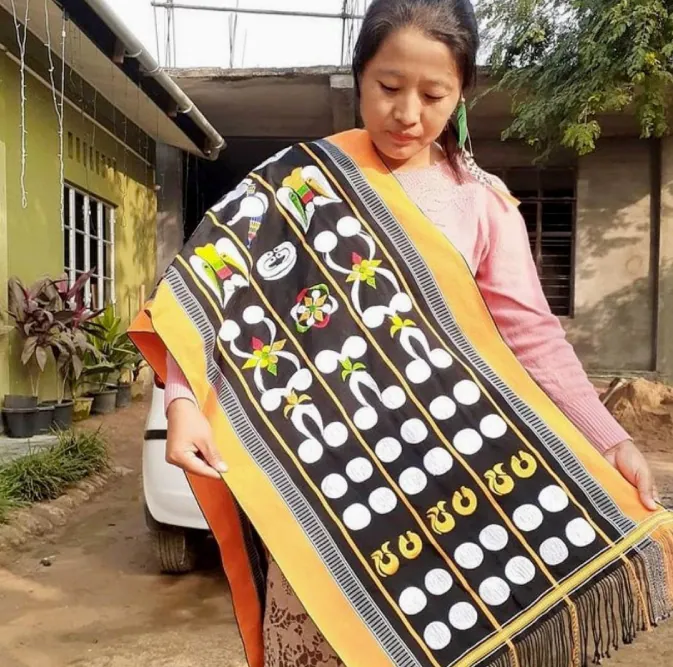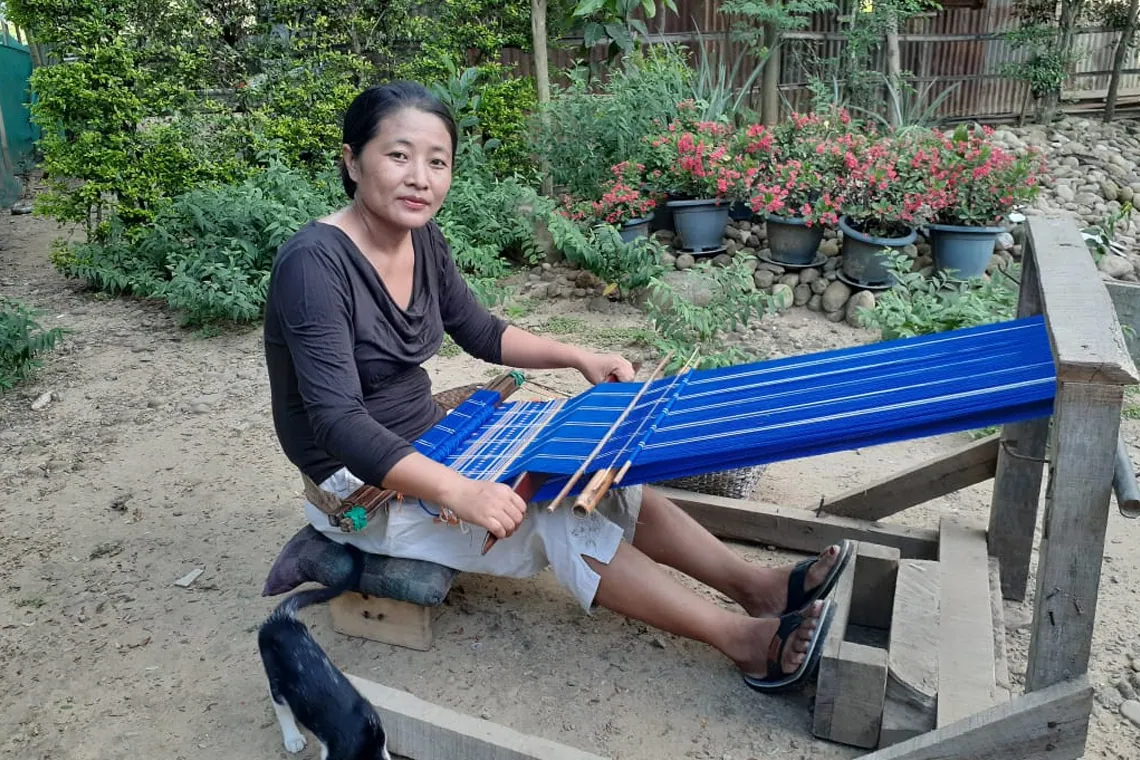‘I feel I can master any design now’
Vekuvolu Dozo, winner of the Indian government’s ‘national handloom award’, has made the most of opportunities provided by Antaran to weavers around the country
‘‘Inever imagined I would receive such a great honour. It was a moment of great happiness and pride for me,” recalls Vekuvolu Dozo of that day in August 2024 when she received the ‘national handloom award’ from India’s vice president, Jagdeep Dhankhar, at New Delhi’s Vigyan Bhavan.
Ms Dozo — affectionately known as Veku — was honoured by the Indian government’s Ministry of Textiles during the 10th ‘national handloom day’ event, a celebration to preserve and promote traditional weaving. And that’s where Ms Dozo, an expert in the art of Nagaland hand-weaving, has played a dazzling role, not least when she represented her state at the Namaste France Festival hosted by the Indian embassy in Paris in 2023.
“You will see a traditional touch in my work but the motifs are contemporary,” says Ms Dozo, who showcased her signature home furnishings at the Paris show.
Lending a hand to Ms Dozo on her journey to national and international recognition has been Antaran, the crafts-based livelihoods programme of the Tata Trusts. Seeded in 2018, Antaran has infused fresh life into some of India’s diverse handloom traditions while working with more than 3,700 artisans, the majority of them women, in handloom hubs in Odisha, Assam, Nagaland and Andhra Pradesh.
The 42-year-old Ms Dozo joined Antaran in 2019 as a relative newcomer to the world of weaves. Her maiden effort at the loom was when she was 18, learning from her aunt to weave the customary Naga shawl for her soon-to-be husband. “It was my first attempt and not a very fine one,” she says.
After marrying at 19, Ms Dozo followed her husband to Uttar Pradesh to engage in missionary work. Weaving took a backseat until the family moved back home to Naga United village near Dimapur in 2019. That’s when Ms Dozo, while caring for her family of four, joined Antaran.
The Antaran training was a revelation for the inherently talented Ms Dozo. “I learned so much, from basic measurements to understanding different yarns to marketing,” she says. “I was once given a very difficult design, which I named dragonfly, and I worked nonstop on it for four days. I’ve now reached a stage where I feel I can master any design.”
Feeling at home
The association with Antaran proved to be a boon for artisans like Ms Dozo, particularly during the Covid pandemic, when they marketed their products online. Ms Dozo took the business lessons to heart and has since built up her own home furnishings label, Viko Ethnic, which has an ever-expanding product portfolio.
Ms Dozo’s designs are tailored to satisfy the demands of dissimilar customer segments. For instance, she exhibits brightly coloured products in Delhi but tones down the palette for buyers in Bengaluru. “It’s important to understand the culture and preferences of buyers,” says Ms Dozo, who has a team of six women in her home workshop and farms out orders to a network of about 30 women weavers.
Products from Ms Dozo’s handloom stable are sold across India and to customers from abroad as well. Till two years ago, her order size was below ![]() 50,000 a year; today it exceeds
50,000 a year; today it exceeds ![]() 250,000 and her order book is full for the months ahead. “My profit hasn’t grown as much since I share the proceeds with my weavers,” she says.
250,000 and her order book is full for the months ahead. “My profit hasn’t grown as much since I share the proceeds with my weavers,” she says.
Ms Dozo continues to think big. “I want a larger workspace as I get a lot of interns from fashion schools. I need more room for them and for storing yarn. I also want to open a shop to showcase my creations.” Meanwhile, there’s the continuous need for marketing and publicity, among other reasons to counter increasing competition from machine-made copies of Naga handlooms.

Ms Dozo and her compatriots are confident that they can count on Antaran, which has concentrated on strengthening India’s crafts ecosystem through multiple endeavours. The overarching objective is to make India’s crafts heritage a pathway to secure sustainable livelihoods.
